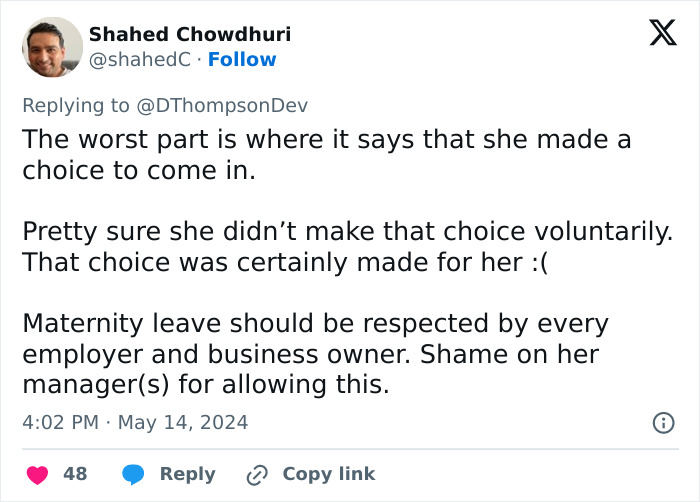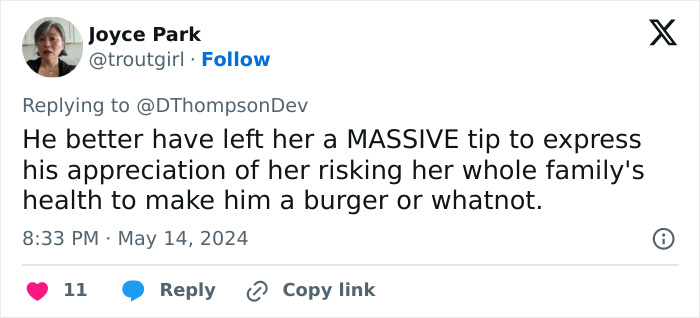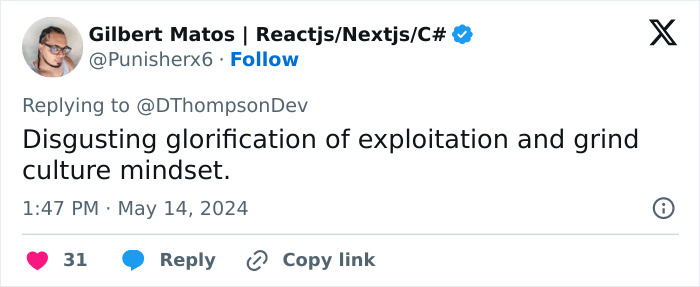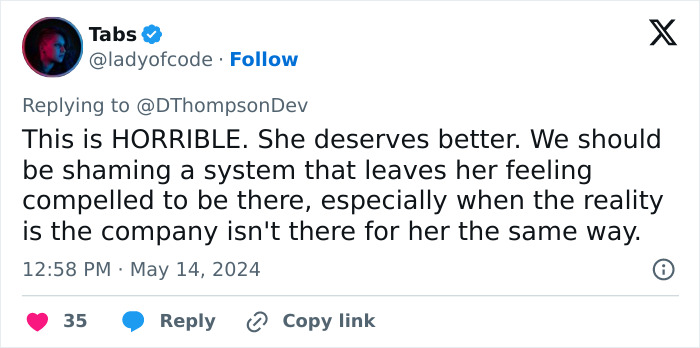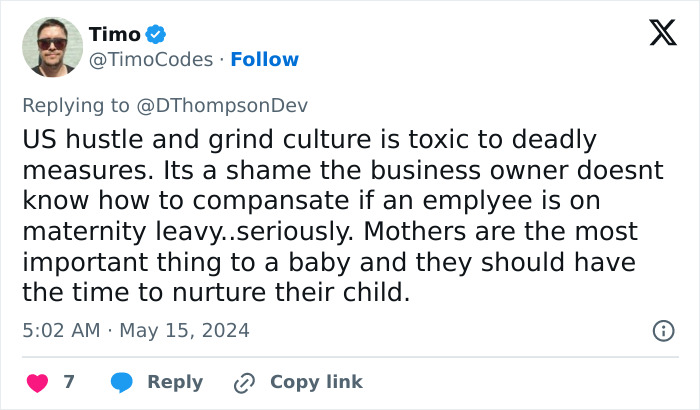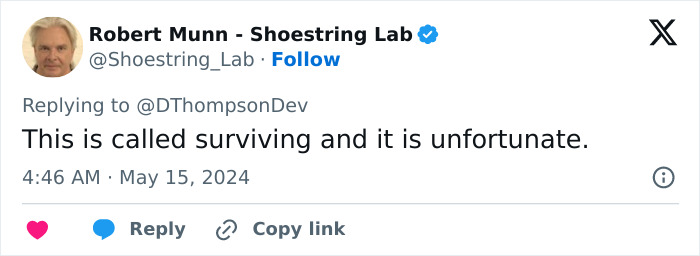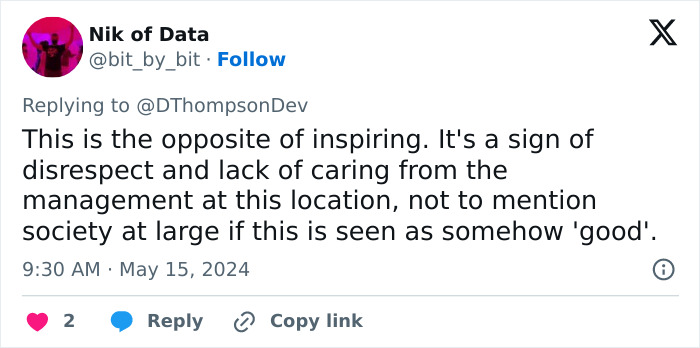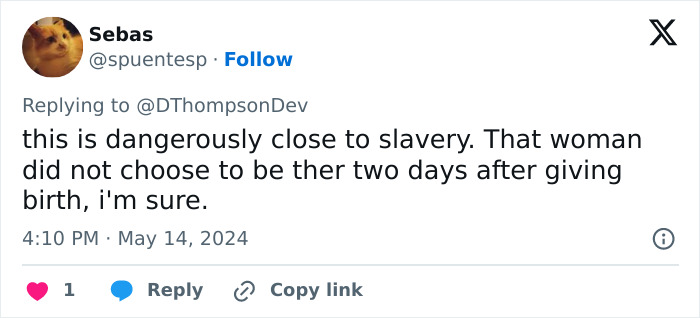Hustle culture is becoming a bigger problem with each passing year. A 2021 World Health Organization study found that 745,000 people passed away in 2016 due to reasons related to overworking. Employees should be able to maintain a healthy work-life balance, especially those who take on the role of a caregiver.
Recently, a story about a mother who came in to work two days after giving birth got a lot of attention online. As much as people were appalled by the working conditions she had to endure, they also called out the person who posted this story. They accused him of glorifying exploitation and wondered how this was even possible.
To know more about the dangers of exploitative hustle culture, we reached out to Phoebe Gavin, a career and leadership coach and the founder of Better With Phoebe. She helps ambitious professionals build successful, fulfilling careers without sacrificing work-life balance using a research-backed, multidisciplinary approach, and she told Bored Panda the downsides of glorifying overworking.
More info: YouTube | Facebook | Instagram | X (Twitter) | The Workplace Guide to Time Management
Mothers should get adequate time off to recover physically and emotionally after giving birth
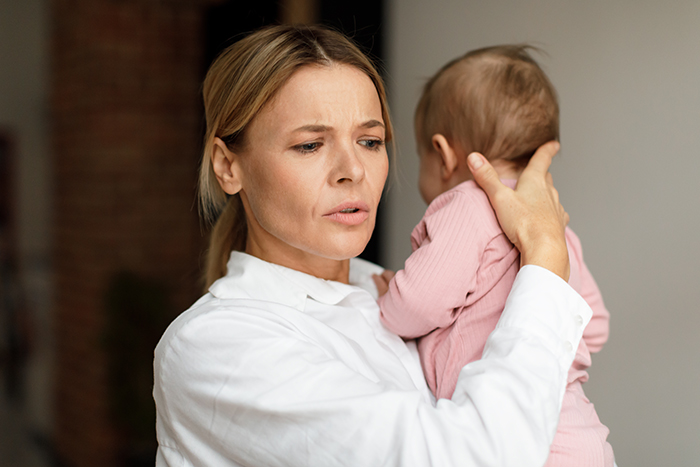
Image credits: Prostock-studio / envato (not the actual photo)
But one man thought that a mother coming in to work two days after childbirth was “inspiring”
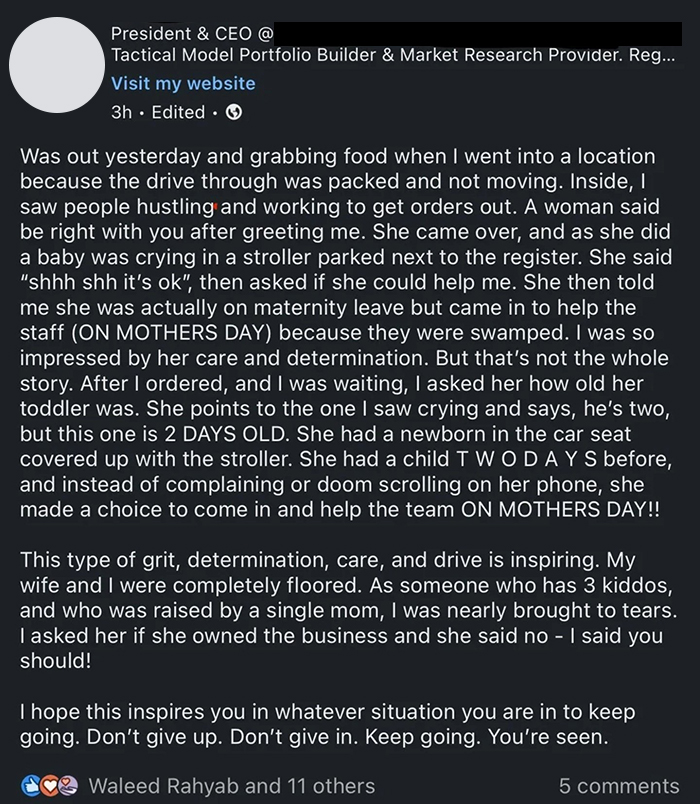
Image credits: DThompsonDev
Danny Thompson disagreed and called out the insane expectations of hustle culture on X (Twitter)

Image credits: DThompsonDev

Image credits: sedrik2007 / envato (not the actual photo)
Career and leadership coach Phoebe Gavin says the glorification of overwork makes it hard to make systemic changes
Phoebe Gavin advocates against grind culture, believing that people deserve a vibrant career that facilitates a healthy and balanced life of fulfillment. She says that current societal attitudes toward work are one reason why it’s so hard to make systemic changes. “The way we glorify overworking in the US makes it difficult to implement key policy changes that support women, mothers, and working parents of all genders.”
“This culture also impacts people dealing with chronic conditions and health issues,” Gavin adds. People who aren’t constantly working or doing overtime are seen as lazy, but in some cases, their bodies literally can’t handle such stress.
People who participate in hustle culture have some blame, too: they’re the reason companies might see overworking as the new ‘normal.’ “Overworking removes the incentive for companies to enact policies that promote balanced, healthy lives and makes it easier for them to take advantage of workers,” Gavin points out.
“Recognizing dedication and hard work should come with tangible rewards,” Gavin proposes a healthier way to incentivize employees. “People should be paid a living wage and receive financial incentives for driving company success. They should also have opportunities to rest and replenish. Recognition should be about meaningful rewards, not just verbal praise or additional work.”
Going back to work immediately after giving birth can be extremely dangerous
I remember watching an episode of the U.S. sitcom Superstore a few years back where an employee had to go back to work just two days after giving birth. Back then, I thought that this only happens on TV – how could a new mother be expected to return to her job when she still hasn’t recovered from giving birth? Yet this story demonstrates that such absurdities happen in real life, too.
Maternity leave is a thing for a reason. “Maternity leave is a time for the woman to rest and recover,” Suzanne Bovone, M.D., an OBGYN at Obstetrics and Gynecology of San Jose, told Forbes. A woman goes through many different physical changes after childbirth, pelvic floor disruption and urinary and bowel dysfunction being just a few examples.
New mothers might also need rehospitalization. Research shows that women who took paid maternity leave have 51% less chance of that happening. Being able to take extended time off after giving birth also contributes to a decrease in infant health problems by 47%.
Doctors advise women to take at least six weeks to heal fully after giving birth. If they’ve had a C-section, that period should be eight weeks. Dr. Rebecca Jackson, professor of Obstetrics and Gynecology at the University of California, San Francisco, told The Guardian that lots of women also still experience pain in the two-week period after giving birth.
Delivering a baby, after all, is a medical procedure. Even if a woman is able to do it naturally, her body doesn’t just heal and bounce back two days after the birth. It’s pretty crazy to think that women are expected to go to work almost the next day. And to a job in a stressful fast-food environment that requires standing for prolonged periods of time, nonetheless.
Mothers in the U.S. usually have to return to work two weeks after giving birth

Image credits: Jonathan Borba / pexels (not the actual photo)
Sadly, the U.S. doesn’t afford mothers the luxury of mandatory paid leave. There is no federal law regulating it, so states decide for themselves. One in four women in the U.S. have to return to work after only two weeks of time off after giving birth. The WHO actually recommends a 16-week minimum.
Many people (who are probably not from the U.S.) might ask: “How is this even legally allowed? Don’t new mothers get mandatory time off?” They do, but not always. In the U.S., a person needs to have worked for an employer for at least 12 months to qualify for maternity leave (which, in some cases, can result in absurd situations, like in the aforementioned Superstore episode).
During those 12 months, a worker also has to have at least 1,250 work hours under their belt. A private employer also has to have 50 employees within a 75-mile radius to be able to cover their workers’ parental leave.
This is all under the 1993 Family and Medical Leave Act (FMLA). However, it only covers 60% of the workforce. Some private companies are starting to offer better benefits, but with no federal regulations in sight for the foreseeable future, it seems that some parents are left to fend for themselves.
“This is disgusting,” people commented on the r/antiwork subreddit
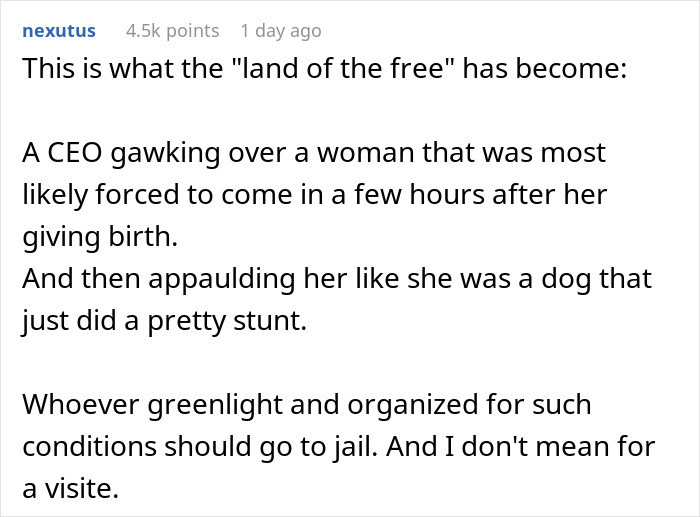
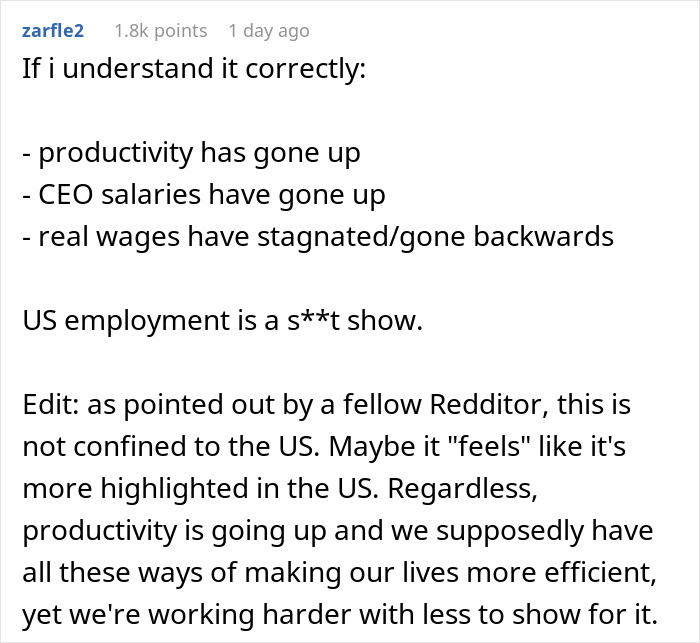

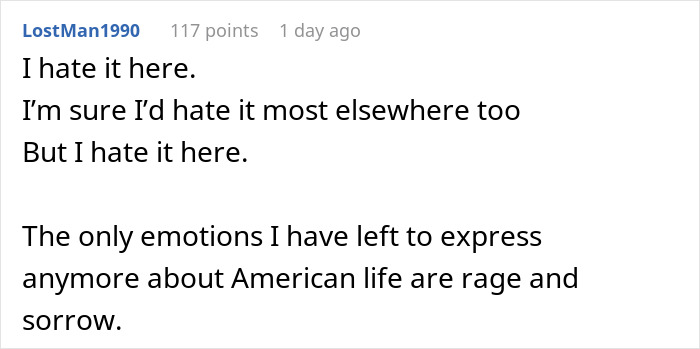

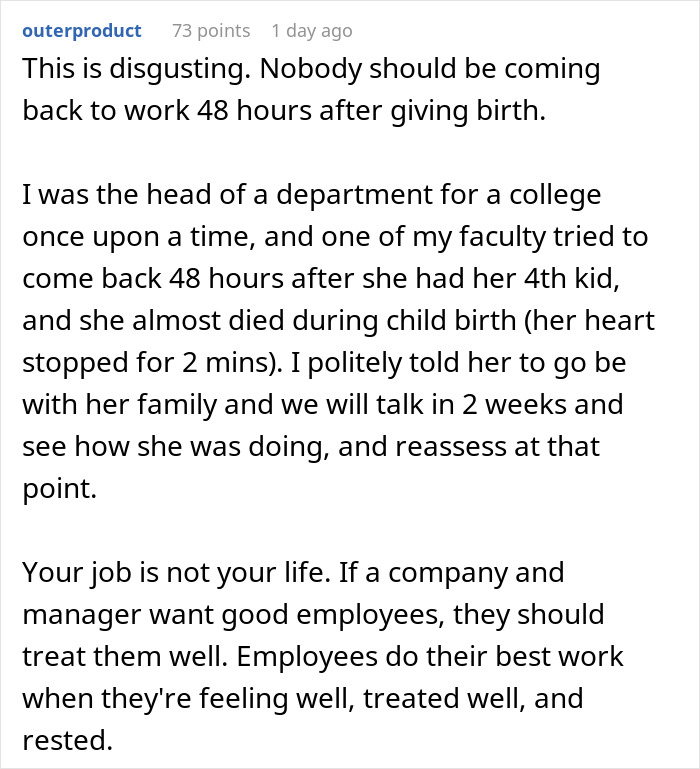

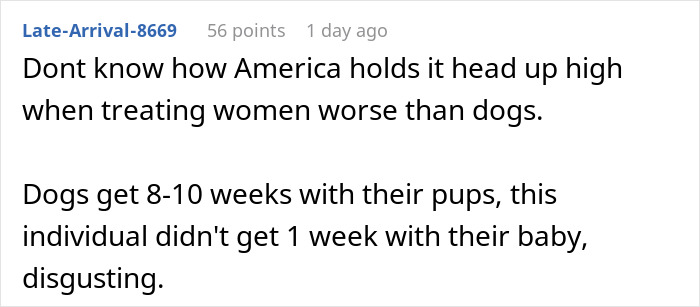
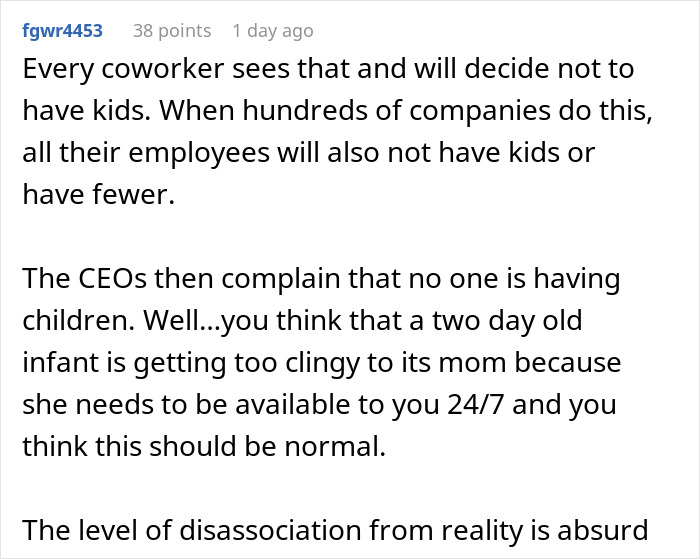

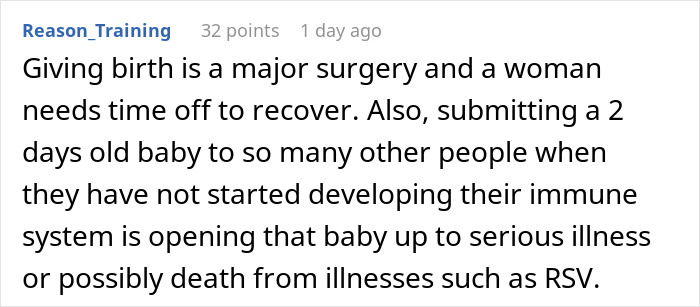



The sentiments on X (Twitter) were similar, with people pointing out there is nothing inspiring about going to work two days after giving birth
